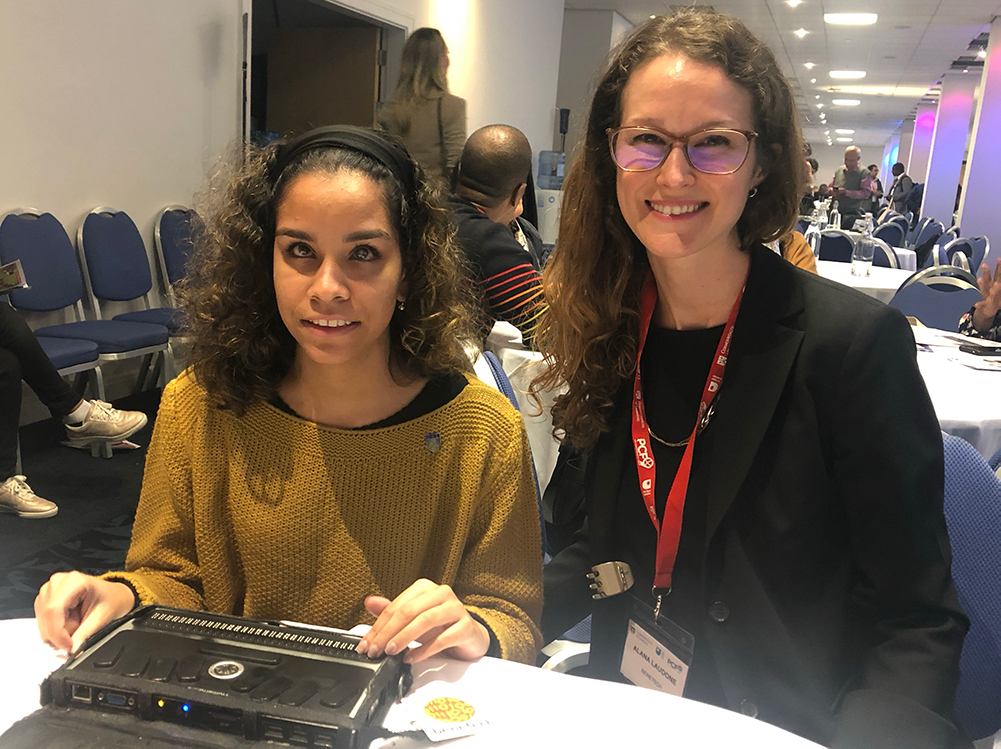
Jane Constance with Alana Laudone (Benetech)
In a world where 95% of published materials cannot be read by persons with disabilities and where 89% of vision-impaired people live in low- and middle-income countries, COL is committed to leveraging ICT and assistive technology to benefit people with print disabilities, such as blindness, low vision, cerebral palsy, or dyslexia.
There are many new advances in assistive technology – from products such as driverless cars and braille watches to tools such as screen readers and text readers. At the recent PCF9 in Edinburgh, Scotland, UNESCO Artist for Peace 2017, Ms. Jane Constance inspired conference delegates as she demonstrated how, as a blind person, her access to print materials is increased and improved when she uses assistive technology.
During the demonstration, delegates saw first-hand how Jane accessed and engaged with learning materials using a braille-related device and Bookshare technology. They also saw how selecting a combination of digital audio and highlighted text, allowed her to hear words at the same time as they are highlighted on the screen. The demonstration also included a display of what access to the material would look and feel like on different hand-held devices. Print-disabled learners can use a computer, tablet or smart phone to tailor the reading experience to meet their individual needs – they can listen, read in braille or select large print.
Jane’s demonstration was made possible through the joint work of three organisations, all of whom share a common goal: to remove barriers that traditionally prevent or limit blind and visually impaired individuals from enjoying their right to read and learn. COL provided the course materials: Starting your own Business originally developed by the Virtual University for Small States of the Commonwealth (VUSSC); Benetech, a non-profit technology company founded by social entrepreneurs, retrofitted the VUSSC course material making it accessible for visually impaired learners; and The Global Rainbow Foundation (GRF), a NGO based in Mauritius, works for people with disabilities with Jane as their ambassador.
COL’s focus on promoting inclusive and equitable education is continuing through a partnership with Global Rainbow Foundation. The project Technology-enabled Learning for Persons with Disabilities (PWD) and Practitioners who Support Them seeks to enhance the capacity of the GRF to train teachers, practitioners and other service workers who support disabled persons to use assistive technologies in ways that will promote more inclusive practices. In addition, the project seeks to create awareness and build sensitization among Mauritian companies, government organisations and the private sector about inclusion of persons with disabilities in the workplace.
Assistive technologies are powerful tools for increasing the potential of learners with disabilities to succeed. Those of us working in education and development must ensure that we are inclusive in our design and production of materials as well as our delivery, and that we encourage our partners similarly. If we want persons to think more about being inclusive, we have to model that ourselves.


